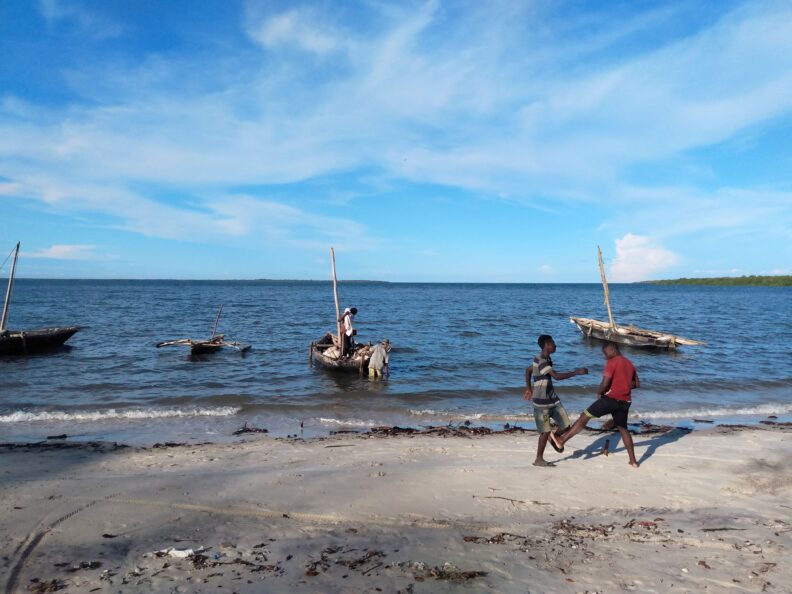Tanga Sociality and Fisheries Project

On the mainland coast of Tanzania, the blue economy represents the bulk of most people’s incomes: some do artisinal fishing, focusing on octopus, sardines, prawns, or handline fishing; some grow seaweed in small-scale seaweed farms; some specialize in cleaning or selling fish, or even owning boats and organizing crews. Fishers often follow the fish and the monsoon winds, such that many spend much of each year in their second villages. Households often live paycheck to paycheck — in this case, day to day, depending on luck fishing and selling fish — but households often have substantial support networks: friends near and far who give gifts and make loans, small groups that pool and redistribute funds, and community-based microloan institutions. Most people practice Islam and see “Tanzanian” as their foremost identity, which means that norms for behavior are shared even with coastal residents at a distance, easing access to fisheries and fishing villages. A large perceived in-group, norms for sharing with strangers, and high mobility mean that fisheries have historically been common-pool resources on coastal Tanzania, and it is difficult for villages to exclude members of other villages today, when facing possible overfishing.

The Tanga Sociality and Fisheries Project is a long-term research project studying the intersection of social relationships and natural resources along the Indian Ocean in the Tanga region of Tanzania. Drawing on theories and methods from diverse disciplines, including evolutionary anthropology, social psychology, and development economics, our goal is to better understand the connection between people’s relationships and their use of their natural resources, and in doing so, support communities in their efforts to improve their lives and protect their environment. We work closely with local NGOs in the area, such as Mwambao Coastal Community Network and Blue Ventures, and community members to develop research questions that will support and benefit the communities.
Research Questions
- How do natural resources shape social relationships within- and between-villages?
- How do social relationships help or hinder natural resource management?
- How can these interactions be leveraged to support sustainable development in the region?
